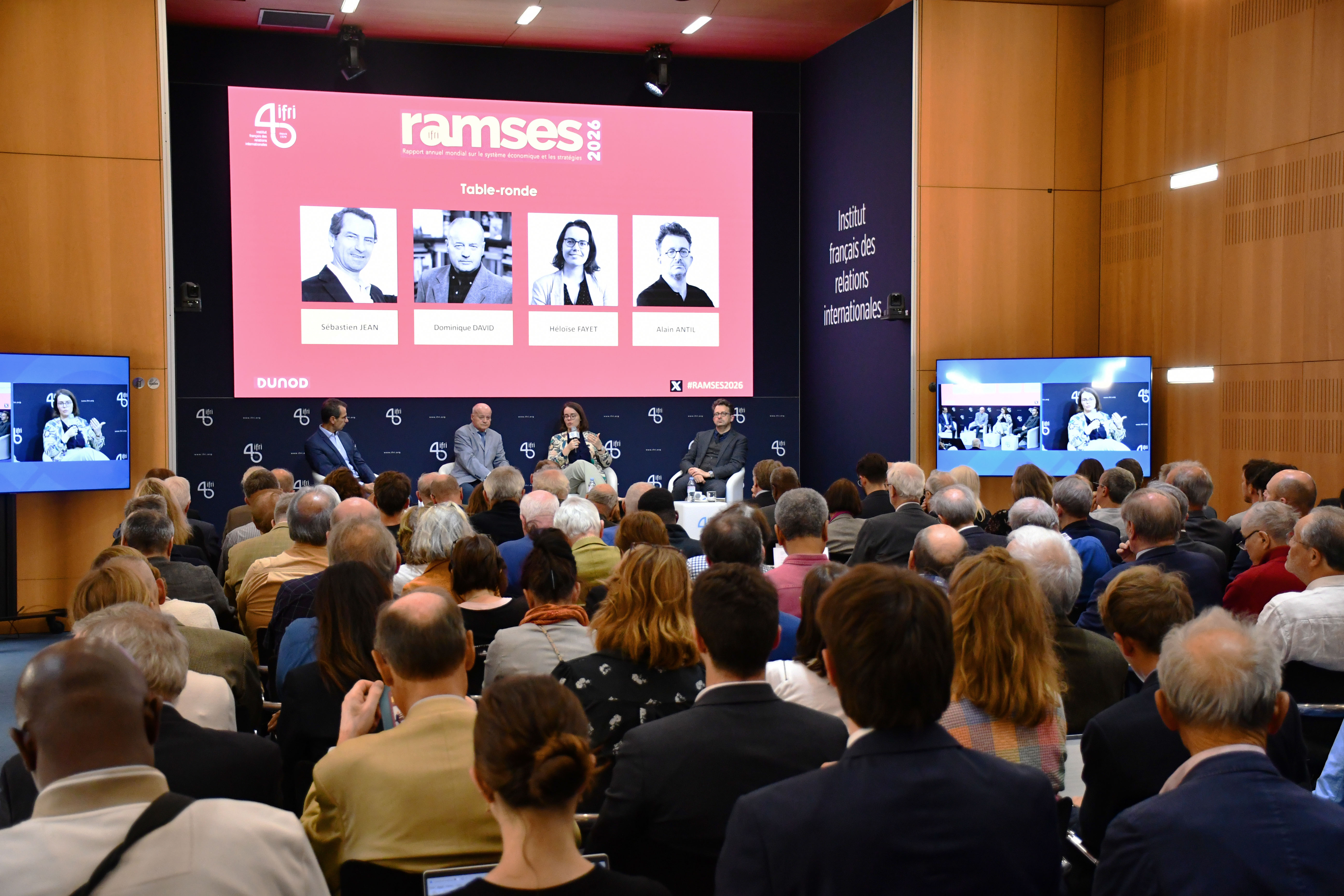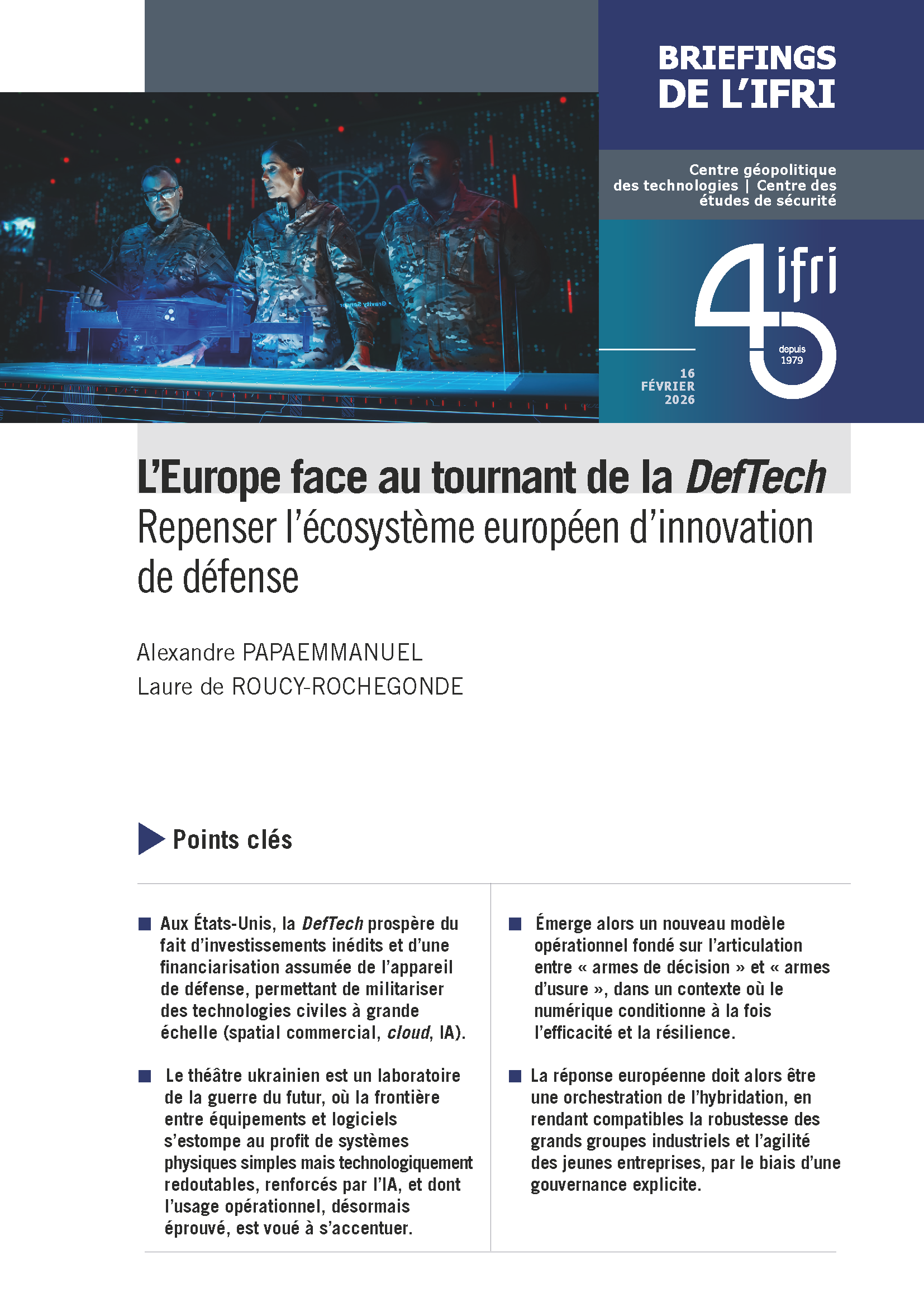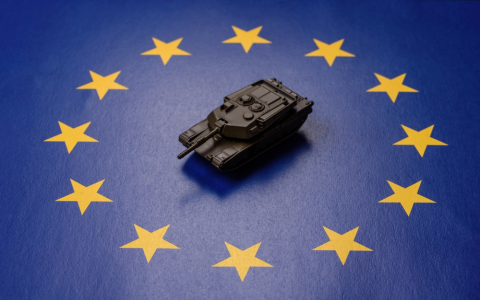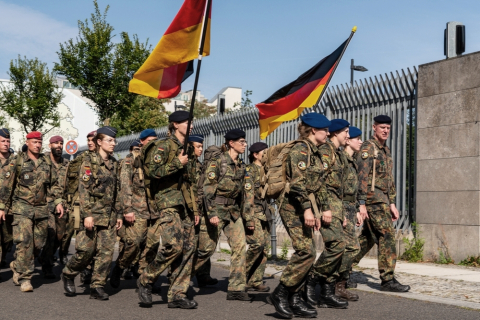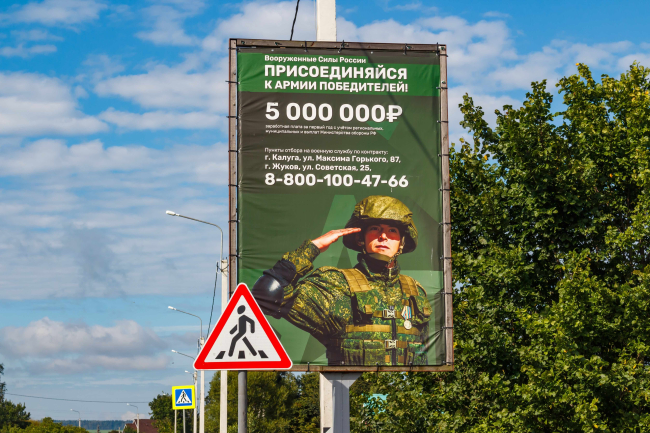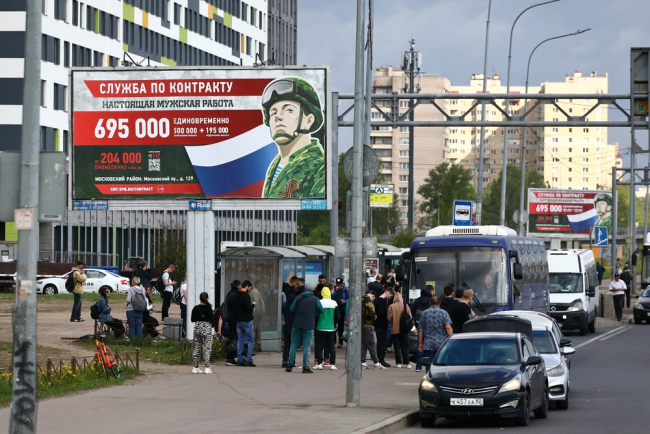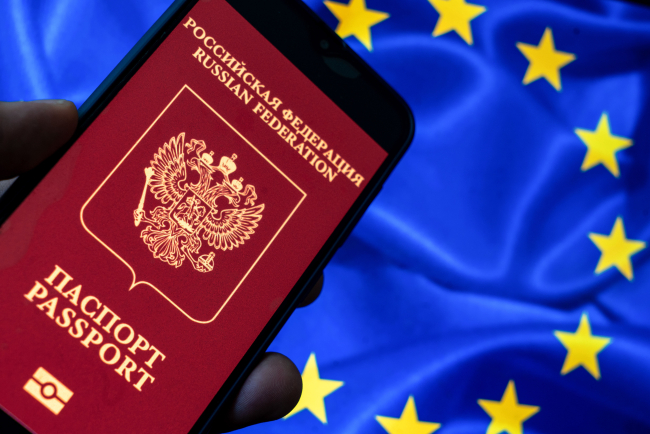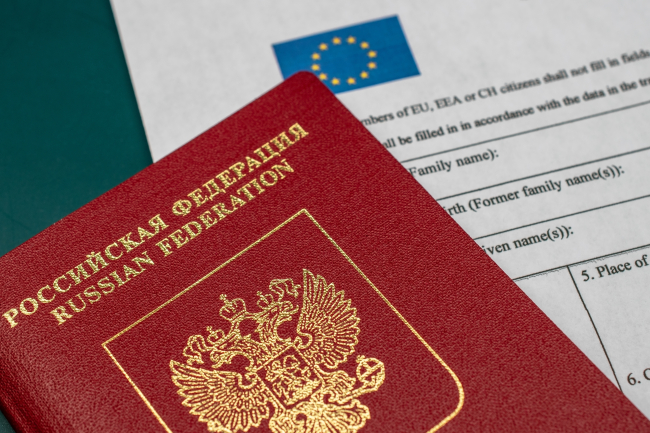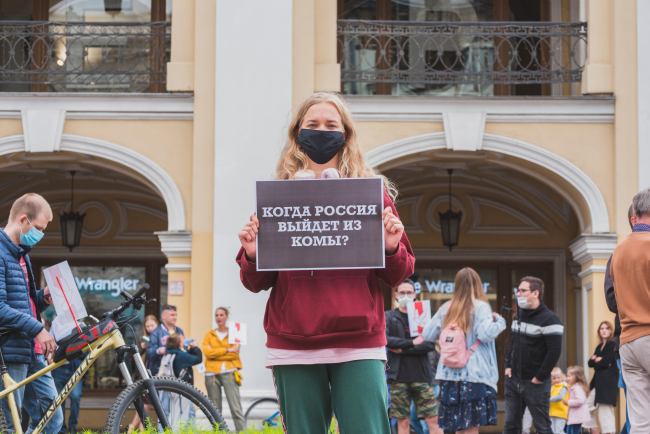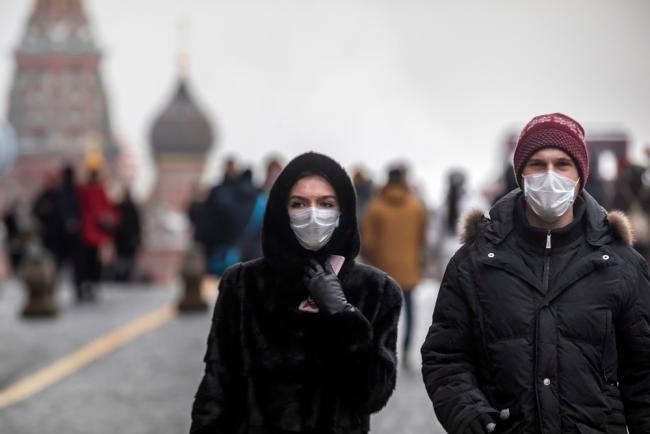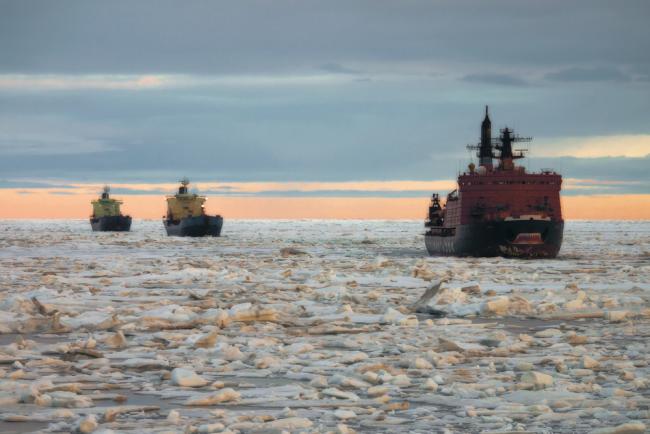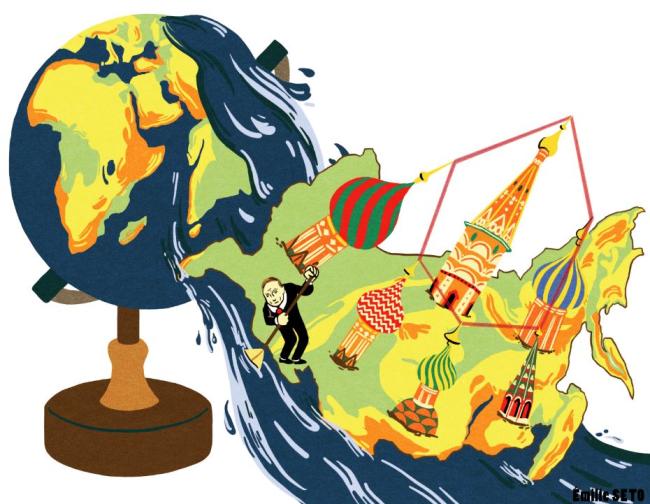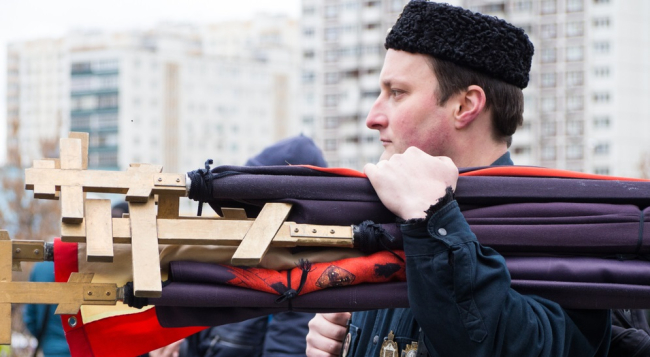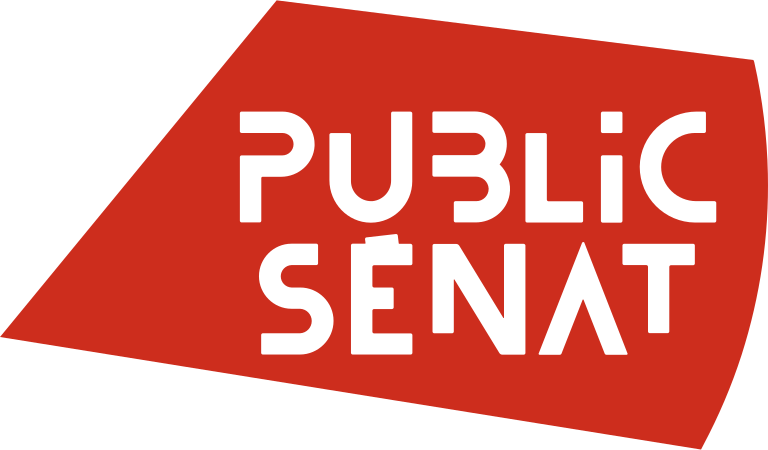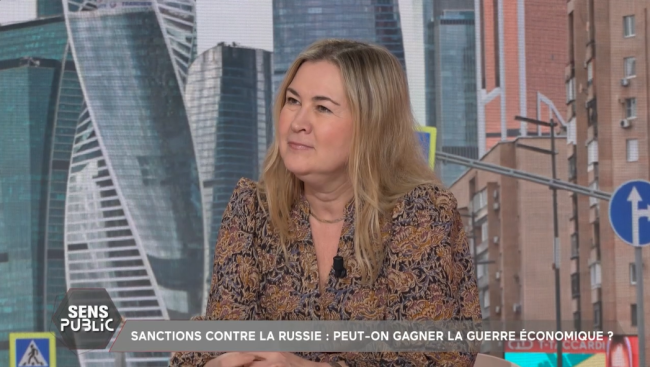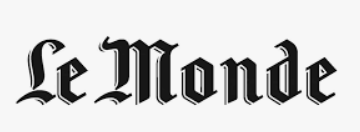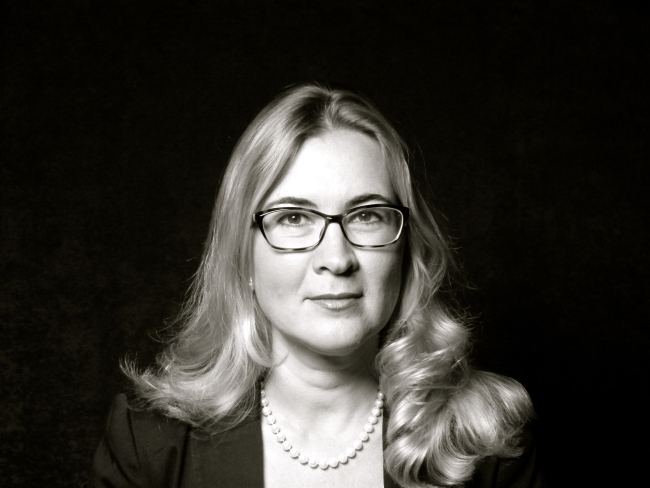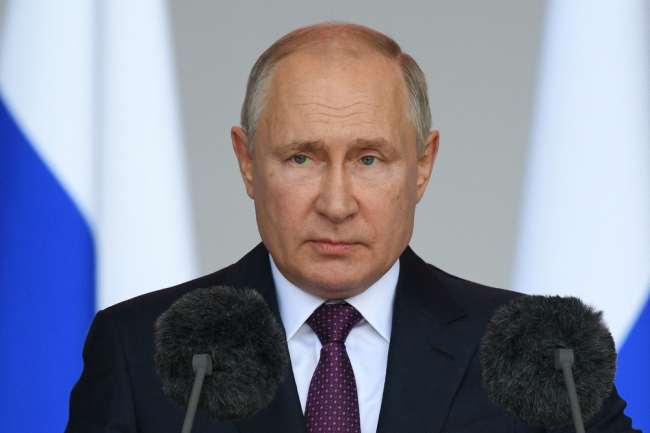La « Deathonomics » russe : coûts sociaux, politiques et économiques de la guerre en Ukraine
La présente Note analyse l’apparition d’un phénomène nouveau pour la société russe, désigné sous le terme d’« économie de la mort » (Deathonomics). Il s’agit de la formation, au cours des années de guerre en Ukraine, d’une force mercenaire venue compléter les systèmes soviétique (la conscription) et russe (l’armée professionnelle) au sein des forces armées. Vers la fin de l’année 2023, ce phénomène a conduit à faire du service militaire l’un des domaines d’activité les mieux rémunérés, ce qui n’avait pas été observé en Russie à une telle échelle depuis la fin du XVIIe siècle.
La guerre comme ascenseur social. L'impact socio-économique du keynésianisme militaire russe
Pour financer l’effort de guerre, l’État russe a dépensé des sommes considérables et mis en place une forme de « keynésianisme militaire », qui transforme la société sur les plans socio-économique et culturel. Il rééquilibre partiellement les importants écarts de richesse, de niveau de consommation et de prestige social de la société russe en accordant des avantages financiers et symboliques importants à la Russie périphérique, longtemps oubliée par le pouvoir central.
La nouvelle diaspora russe : défis et opportunités pour l'Europe
Ce rapport évalue à la fois l'ampleur et les causes de l'émigration de la Fédération de Russie qui a coïncidé avec la transformation de la Russie par Poutine en un État autoritaire et agressif.
L’exode du siècle : une nouvelle vague d'émigration russe
L’assaut lancé par la Russie contre l’Ukraine n’a pas seulement modifié les contours de la géopolitique mondiale ; il a aussi profondément affecté la société russe en incitant de très nombreuses personnes indépendantes d’esprit à quitter le pays.
Russie : les difficultés économiques peuvent-elles fragiliser le système politique ?
Depuis plusieurs années, des politiciens et experts russes de tendance libérale prédisent que des bouleversements dans la vie politique et économique de leur pays entraîneront rapidement la chute du régime de Vladimir Poutine.
Un outsider paradoxal : la Russie dans la course à l’intelligence artificielle
Entre les deux leaders technologiques que sont les États-Unis et la Chine, la Russie fait jusqu’à présent figure d’outsider dans l’analyse des enjeux globaux d’intelligence artificielle (IA).
Quand la guerre s’invite à l’école : la militarisation de l’enseignement en Russie
La chute de l’Union soviétique a mis fin aux mouvements sous l’égide du Parti communiste destinés aux enfants et aux jeunes, mais aussi aux cours de « préparation militaire initiale » qui étaient obligatoires pour les lycéens soviétiques.
La Russie face à un triple défi : réforme constitutionnelle, chute du prix du pétrole et COVID-19
Le printemps 2020 devait offrir deux points d’orgue à Vladimir Poutine. Le 22 avril, un vote populaire était censé couronner la procédure de révision constitutionnelle, ouvrant le chemin au maintien du président russe au pouvoir jusqu’en 2036.
La politique arctique de la Russie : une stratégie de puissance et ses limites
En dépit de la dégradation de ses relations avec les pays occidentaux et d’une stagnation économique limitant sa marge de manœuvre, la Russie continue d’afficher une politique ambitieuse pour la région arctique.
La Russie en quête de son « Internet souverain »
Petit à petit, Moscou a renforcé son contrôle sur l’Internet en Russie, mais sans jamais parvenir à museler l’usage militant. À partir du 1er décembre, une nouvelle loi instituera un « Internet souverain » et vise à maîtriser complètement les infrastructures sur le territoire russe.
La « Deathonomics » russe : coûts sociaux, politiques et économiques de la guerre en Ukraine
La présente Note analyse l’apparition d’un phénomène nouveau pour la société russe, désigné sous le terme d’« économie de la mort » (Deathonomics). Il s’agit de la formation, au cours des années de guerre en Ukraine, d’une force mercenaire venue compléter les systèmes soviétique (la conscription) et russe (l’armée professionnelle) au sein des forces armées. Vers la fin de l’année 2023, ce phénomène a conduit à faire du service militaire l’un des domaines d’activité les mieux rémunérés, ce qui n’avait pas été observé en Russie à une telle échelle depuis la fin du XVIIe siècle.
La guerre comme ascenseur social. L'impact socio-économique du keynésianisme militaire russe
Pour financer l’effort de guerre, l’État russe a dépensé des sommes considérables et mis en place une forme de « keynésianisme militaire », qui transforme la société sur les plans socio-économique et culturel. Il rééquilibre partiellement les importants écarts de richesse, de niveau de consommation et de prestige social de la société russe en accordant des avantages financiers et symboliques importants à la Russie périphérique, longtemps oubliée par le pouvoir central.
L’exode du siècle : une nouvelle vague d'émigration russe
L’assaut lancé par la Russie contre l’Ukraine n’a pas seulement modifié les contours de la géopolitique mondiale ; il a aussi profondément affecté la société russe en incitant de très nombreuses personnes indépendantes d’esprit à quitter le pays.
Russie : les difficultés économiques peuvent-elles fragiliser le système politique ?
Depuis plusieurs années, des politiciens et experts russes de tendance libérale prédisent que des bouleversements dans la vie politique et économique de leur pays entraîneront rapidement la chute du régime de Vladimir Poutine.
Un outsider paradoxal : la Russie dans la course à l’intelligence artificielle
Entre les deux leaders technologiques que sont les États-Unis et la Chine, la Russie fait jusqu’à présent figure d’outsider dans l’analyse des enjeux globaux d’intelligence artificielle (IA).
Quand la guerre s’invite à l’école : la militarisation de l’enseignement en Russie
La chute de l’Union soviétique a mis fin aux mouvements sous l’égide du Parti communiste destinés aux enfants et aux jeunes, mais aussi aux cours de « préparation militaire initiale » qui étaient obligatoires pour les lycéens soviétiques.
La Russie face à un triple défi : réforme constitutionnelle, chute du prix du pétrole et COVID-19
Le printemps 2020 devait offrir deux points d’orgue à Vladimir Poutine. Le 22 avril, un vote populaire était censé couronner la procédure de révision constitutionnelle, ouvrant le chemin au maintien du président russe au pouvoir jusqu’en 2036.
La politique arctique de la Russie : une stratégie de puissance et ses limites
En dépit de la dégradation de ses relations avec les pays occidentaux et d’une stagnation économique limitant sa marge de manœuvre, la Russie continue d’afficher une politique ambitieuse pour la région arctique.
La Russie en quête de son « Internet souverain »
Petit à petit, Moscou a renforcé son contrôle sur l’Internet en Russie, mais sans jamais parvenir à museler l’usage militant. À partir du 1er décembre, une nouvelle loi instituera un « Internet souverain » et vise à maîtriser complètement les infrastructures sur le territoire russe.
Les milices russes et leur utilisation à l’intérieur et à l’étranger
Le monde des milices occupe une place unique dans la Russie post-soviétique.
Près de quatre ans après l’invasion de l’Ukraine, la Russie dans tous ses états
Alors que le Kremlin annonce l'ouverture d'un nouveau cycle de négociations les 17 et 18 février à Genève, quelles sont les capacités réelles de l’armée russe à poursuivre la guerre ? Comment se porte l'économie russe sous sanctions ? Et quelles alliances sur la scène internationale ? Tatiana Kastouéva-Jean, directrice du Centre Russie/Eurasie de l'Ifri, analyse la situation actuelle.
« Guerre avec l’Europe » : « Lorsque Poutine fait cette déclaration, il se garde bien de dire qu’elle a déjà commencé »
« Si l’Europe le souhaite et commence, nous sommes prêts dès maintenant », a déclaré ce mardi le président russe. Mais, dans la culture russe, un conflit ne nécessite pas de recourir aux moyens militaires, analyse le chercheur Dimitri Minic.

Europe, Russie : évaluation des rapports de force
L’Europe aurait tort de sous-estimer la menace russe. Partisane de la force, la Russie dispose de troupes importantes et a moins d’états d’âme que les Européens. L’Europe a des moyens et des compétences, encore faut-il qu’elle ait la volonté politique et une certaine unité. Ce sont certaines des conclusions d’un rapport de l’Ifri rendu public le 4 novembre 2025 : Europe Russie, Évaluation des rapports de force.
Sanctions contre la Russie : peut-on gagner la guerre économique ?
Plus de trois ans après l’invasion de l’Ukraine, où en est l’économie russe ? Alors que les États-Unis et l’Union européenne durcissent leurs sanctions, le Kremlin doit désormais trouver comment maintenir son économie et poursuivre son effort de guerre. Quel impact ont eu les mesures prises par Trump ? Les pressions européennes ont-elles vraiment affaibli Moscou ? L’Union européenne parviendra-t-elle à s’accorder sur une position commune ?
L'Ukraine, attaquée jusque dans ses infrastructures énergétiques par la Russie, met le pétrole russe sous pression
Kiev et neuf régions d'Ukraine sont touchées par des coupures d'électricité après des frappes russes via des drones et des missiles mortels. Les forces ukrainiennes répliquent par des attaques de longue portée contre les infrastructures pétrolières russes, un secteur-clé pour le Kremlin. Entretien avec Tatiana Kastouéva-Jean, directrice du Centre Russie/Eurasie de l'Ifri.
« En Russie, l’impact démographique de la guerre en Ukraine s’ajoute au déclin structurel de la population depuis la chute de l’URSS »
Moscou fait face à une grave pénurie de main-d’œuvre. Les autorités tentent de répondre par l’immigration contrôlée, la robotisation et des politiques natalistes, sans résultats probants, constate la spécialiste de la Russie Tatiana Kastouéva-Jean.


De gré ou de force : la Russie unie
Devant un parterre de jeunes élèves russes à l’occasion de la rentrée scolaire, le Président Russe a vanté la nouvelle version des manuels d’histoire. Ceux-ci incluent désormais un chapitre sur “l’opération militaire spéciale” en Ukraine, où la guerre y est présentée comme une intervention nécessaire qui aurait permis d’éviter “la fin de la civilisation humaine”.


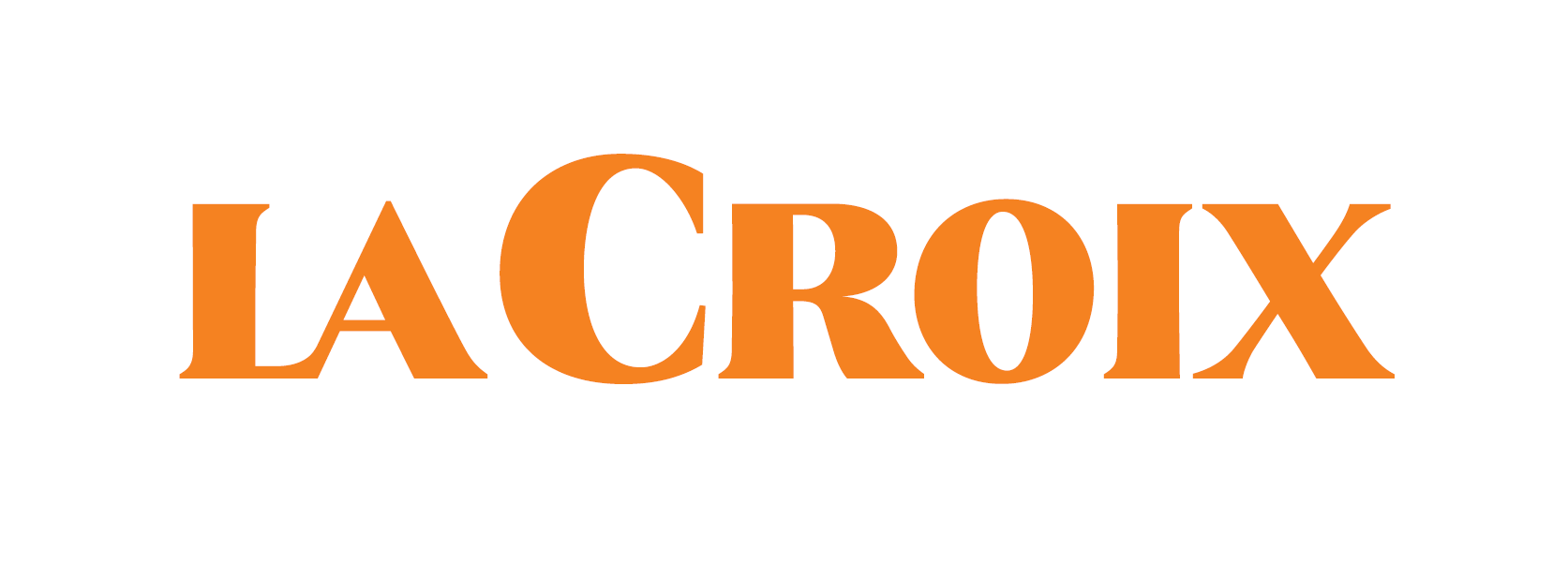

Guerre en Ukraine : comment la Russie contourne les sanctions économiques
Pour échapper aux différents embargos mis en place depuis un an, la Russie s’est affranchie des règles du commerce international. Elle a recours à de multiples stratagèmes. L’économie russe rencontre tout de même des difficultés, mais elle ne s’est pas effondrée. Un an de guerre en Ukraine.
Sanctions économiques : la Russie résiste, mais jusqu’à quand ?
Bruno Lemaire avait prévu un effondrement de l’économie russe face aux sanctions occidentales. Aujourd’hui, près d’un an après le début de la guerre, ce scénario ne semble pas se vérifier. Comment l’expliquer et combien de temps la Russie peut-elle encore tenir ?
Près de quatre ans après l’invasion de l’Ukraine, la Russie dans tous ses états
Alors que le Kremlin annonce l'ouverture d'un nouveau cycle de négociations les 17 et 18 février à Genève, quelles sont les capacités réelles de l’armée russe à poursuivre la guerre ? Comment se porte l'économie russe sous sanctions ? Et quelles alliances sur la scène internationale ? Tatiana Kastouéva-Jean, directrice du Centre Russie/Eurasie de l'Ifri, analyse la situation actuelle.
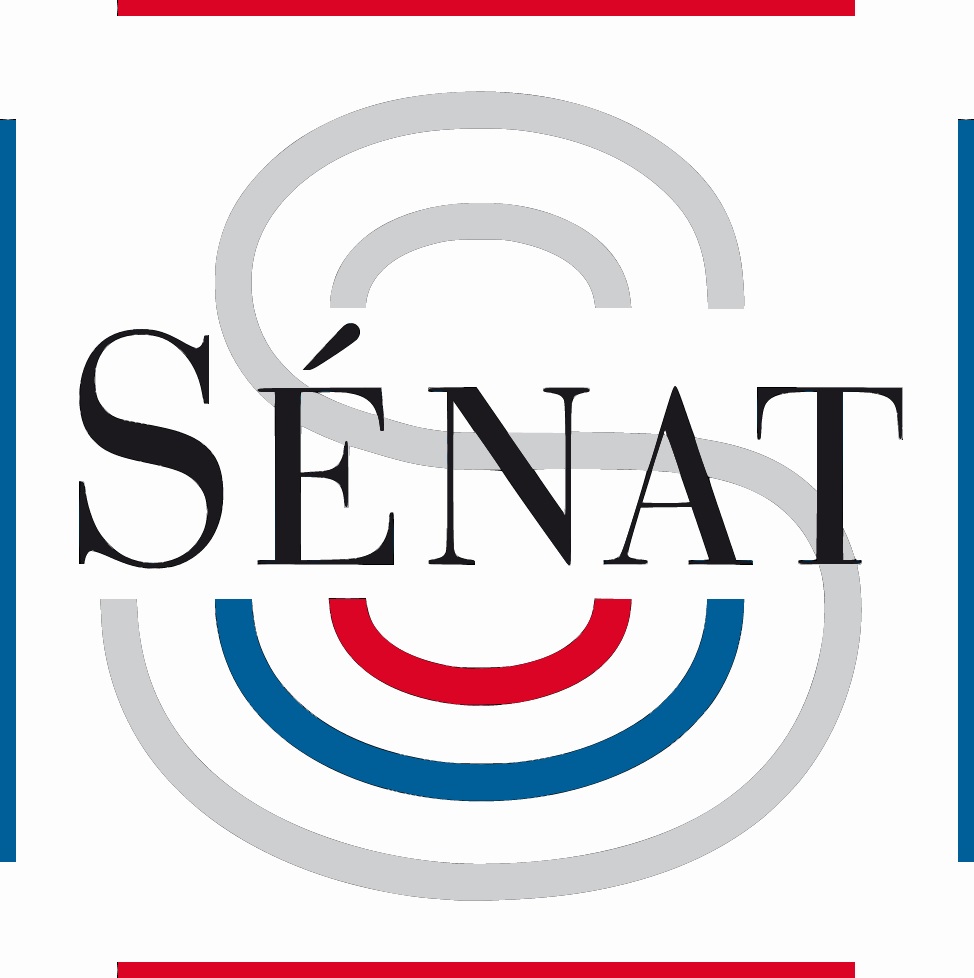
Europe-Russie : évaluation des rapports de forces
Audition d'Élie Tenenbaum, directeur du Centre des études de sécurité de l’Ifri, suite de la publication de l'étude « Europe-Russie : Évaluation des rapports de force ».

Europe, Russie : évaluation des rapports de force
L’Europe aurait tort de sous-estimer la menace russe. Partisane de la force, la Russie dispose de troupes importantes et a moins d’états d’âme que les Européens. L’Europe a des moyens et des compétences, encore faut-il qu’elle ait la volonté politique et une certaine unité. Ce sont certaines des conclusions d’un rapport de l’Ifri rendu public le 4 novembre 2025 : Europe Russie, Évaluation des rapports de force.
Sanctions contre la Russie : peut-on gagner la guerre économique ?
Plus de trois ans après l’invasion de l’Ukraine, où en est l’économie russe ? Alors que les États-Unis et l’Union européenne durcissent leurs sanctions, le Kremlin doit désormais trouver comment maintenir son économie et poursuivre son effort de guerre. Quel impact ont eu les mesures prises par Trump ? Les pressions européennes ont-elles vraiment affaibli Moscou ? L’Union européenne parviendra-t-elle à s’accorder sur une position commune ?
L'Ukraine, attaquée jusque dans ses infrastructures énergétiques par la Russie, met le pétrole russe sous pression
Kiev et neuf régions d'Ukraine sont touchées par des coupures d'électricité après des frappes russes via des drones et des missiles mortels. Les forces ukrainiennes répliquent par des attaques de longue portée contre les infrastructures pétrolières russes, un secteur-clé pour le Kremlin. Entretien avec Tatiana Kastouéva-Jean, directrice du Centre Russie/Eurasie de l'Ifri.
Deux ans de guerre en Ukraine : bilan et perspectives
Pour quelles raisons la contre-offensive ukrainienne de 2023 a-t-elle échoué ? Peut-on dire que les Ukrainiens et les Occidentaux ont sous-estimé la résilience de l’armée russe ? Qu'adviendra-t-il de l'Ukraine en cas de baisse significative du soutien américain ?
L’économie russe résistera-t-elle aux sanctions ? Webinaire
Briefing de Julien Vercueil, professeur des universités en sciences économiques, vice-président de l'INALCO.
Que veut, que peut la Russie, trente ans après ? RAMSES 2022
Intervention de Tatiana Kastouéva-Jean, directrice du Centre Russie/NEI de l'Ifri, à l'occasion de la conférence de présentation du RAMSES 2022, le 23 septembre 2021 à l'Ifri.
Soutenez une recherche française indépendante
L'Ifri, fondation reconnue d'utilité publique, s'appuie en grande partie sur des donateurs privés – entreprises et particuliers – pour garantir sa pérennité et son indépendance intellectuelle. Par leur financement, les donateurs contribuent à maintenir la position de l’Institut parmi les principaux think tanks mondiaux. En bénéficiant d’un réseau et d’un savoir-faire reconnus à l’international, les donateurs affinent leur compréhension du risque géopolitique et ses conséquences sur la politique et l’économie mondiales. En 2025, l’Ifri accompagne plus de 80 entreprises et organisations françaises et étrangères.
